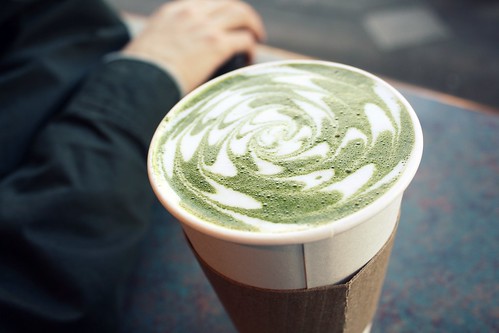 |
| This Winnie Zhang photo shows that songs need to be pretty amazing these days in order to compete with the elegant awesomeness of a matcha latte. |
Art-making lacks certain fundamental elements that define typical professions and businesses. Unfortunately for artists, its accoutrements suffer no such handicap. When you couple technological change with art-making, you begin to see why people will pay $5.00 for a latte but not $0.99 for a song download.
They’re not wrong: $0.99 for a song is too expensive when there’s no value in owning recorded music because you only ever stream it. You can argue that the cost of recording the music justifies a higher price, but that’s irrelevant. In capitalism, the value of something is determined by what people are willing to pay, not by what it costs to produce. If your production costs are too high to turn a profit, you go out of business—that’s how it’s supposed to work. Records and radio hurt the 19th-century sheet music industry. Then amplified music hurt big bands. Then movies hurt opera companies and orchestras, drum machines and sequencers hurt studio musicians, DJs hurt bar and wedding bands, and online streaming is hurting record labels—to the point that Lady Gaga’s recent SXSW performance was sponsored by Doritos, not her label. Meanwhile, music is still music. It’s not like you can enjoy it twice as efficiently by listening to two pieces at once.
Aaron's solutions are open-ended and emphasize the importance of not blaming the venue (after all, you can always walk away), but looking for opportunities through collaboration and finding your market.
No comments:
Post a Comment